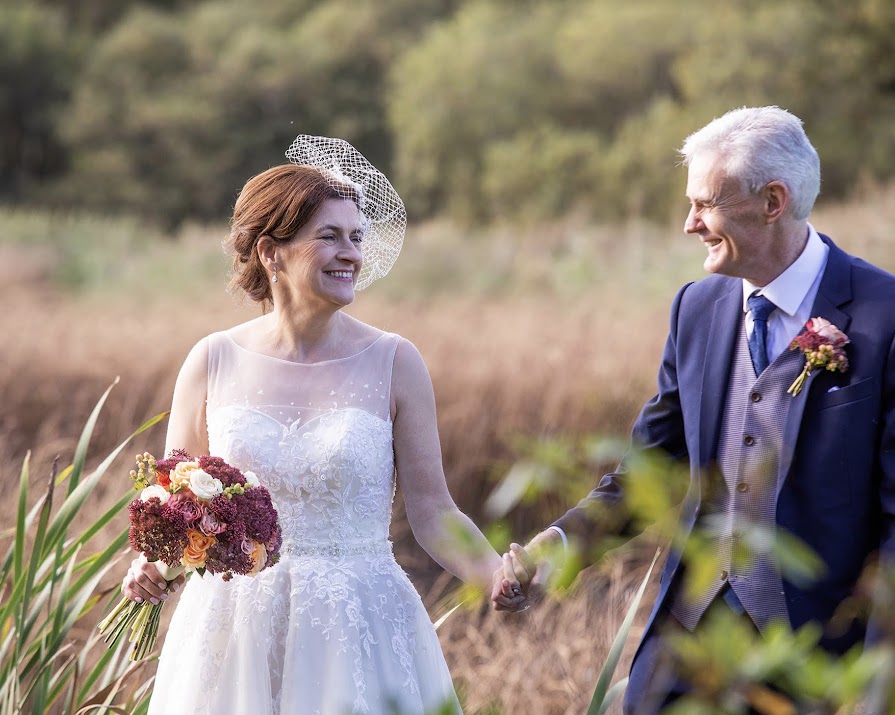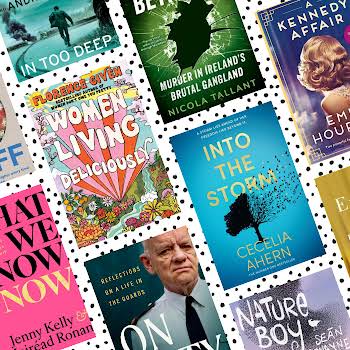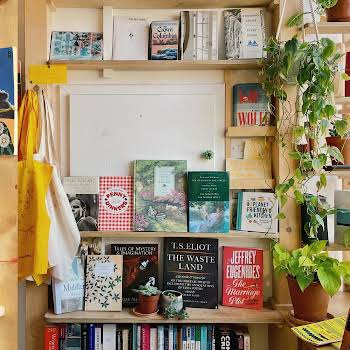
‘Falling in love at fifty gave me a new perspective on the single life I had accepted’
By Amanda Cassidy
18th Mar 2023
18th Mar 2023
Sheena Wilkinson is a multi-award-winning writer who has just launched her adult fiction career with the Mrs Hart’s Marriage Bureau. The Irish Times describes it as "pitch-perfect" and "insightful." Being single for almost twenty years Wilkinson says she was subject to a good deal of well-meaning, often hilarious matchmaking from relatives. She speaks to Amanda Cassidy about how her own experiences shaped her novel.
‘I wouldn’t say lonely,’ one of the clients of Mrs Hart’s Marriage Bureau says, ‘Not lonely exactly… but it’s quite an effort not to be lonely.’
Having lived alone for twenty-four years, I know what she means. My book, Mrs Hart’s Marriage Bureau is set in 1934, in a world of hardworking spinsters, rented rooms and tea shops. It’s a world where marriage is held up as the peak of a woman’s ambition, so that those who remain single are seen – often by themselves – as having somehow failed at life.
It’s a world I know well, give or take a bias-cut frock and a black-and-white matinée.
‘Would he not do you?’ was the most frequent remark my mother made to me between the ages of twenty and fifty. At first the men were, at least in Mummy’s eyes, eligible – solvent, sound and single, though often, as she was not blessed with sensitive gaydar, less available than she imagined. As I hit thirty alone, and then forty, she allowed standards to slip to the extent where the presence of a pulse and the absence of a partner were qualifications enough.
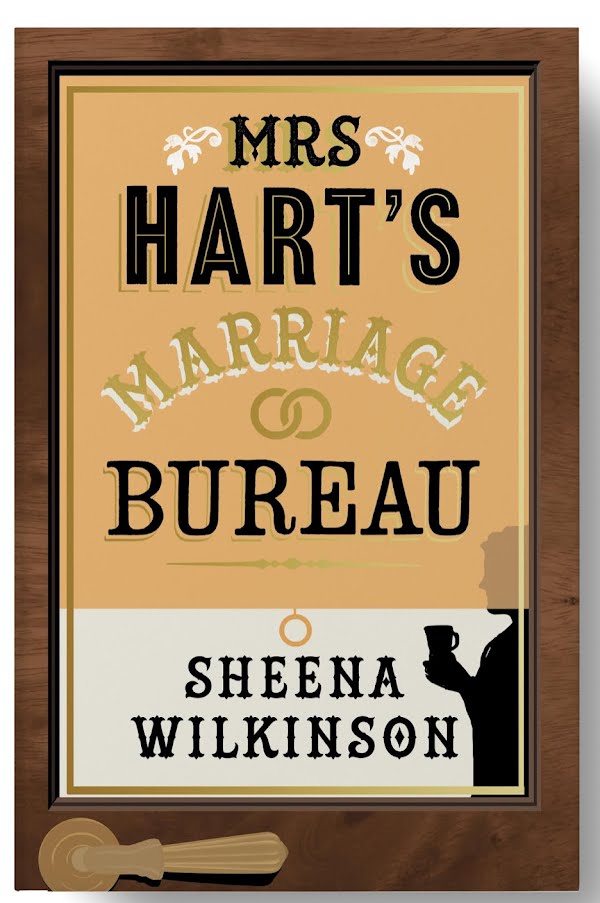
From mountainy bachelors (‘Think of inheriting that lovely old farmhouse!) to Presbyterian ministers (‘Sure you’re a great wee baker!’) – few were safe from her matchmaking zeal. I told her I’d rather have a book deal than a man. ‘Can’t you have both?’ she suggested. ‘Look at [insert name of successful married writer].’
Our society is still built around an expectation of coupledom.
But I was content alone. I preferred to keep my life on an emotional even keel. The few romantic relationships I’d invested in had ended in disaster and a battering of the confident selfhood I clung to. It was easier to opt out.
As my thirties gave way to my forties, I can’t pretend that I was beating off the suitors. It was a shock, and then a relief, to realise I had become invisible. Even Mummy gave up on me, after a brief foray into the over-sixties widowed community. (‘Sure he’s still got hair.’) I had my own house and, by now, a successful writing career. And wonderful friends – but even the best friends don’t want to see you on a Friday or Saturday night, unless they too are single, and most of mine weren’t.
There’s no doubt that our society is still built around an expectation of coupledom. Look at holidaying: single supplement; family friendly; couples resort. Most of my ‘holidays’ were to writing retreats, where there was the company of other writers and my works-in-progress.
These works seldom involved much romance. Partly because my first eight novels were for young people, but also because I had no particular interest in people getting coupled up. Romance was as far outside my interests as fantasy or science fiction: to paraphrase Miss Jean Brodie, for those who liked that sort of thing, that was the sort of thing they liked.
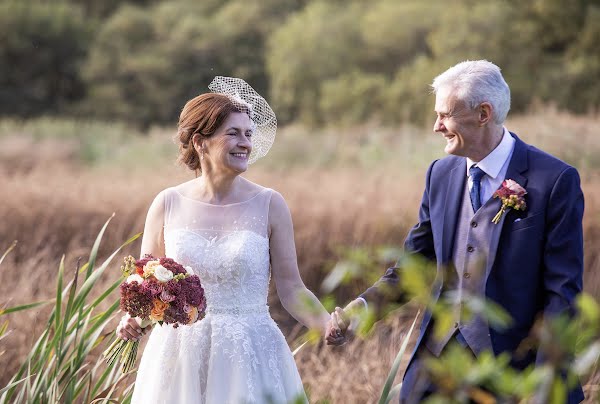
And then, aged fifty, after two decades of not even dating, I fell deeply in love with an old friend who had been recently widowed. Maybe I did like that sort of thing after all! We were married a month before I completed my first adult novel, which is set in a marriage bureau. It would be disingenuous to say there was no connection.
But Mrs Hart’s Marriage Bureau is inspired even more by my decades alone. Falling in love at fifty gave me a new perspective on the single life I had accepted, quite happily, as a permanent state. All those years, like the character quoted at the start of this article, I would not have called myself lonely.
Loneliness means different things to different people – the absence of a dead partner; trying to make friends in a new place; being physically alone when you don’t want to be, or feeling that you aren’t quite connecting with people. It’s the deficit between the social interaction you want, and what you’ve actually got.
Loneliness isn’t the same as being alone, but when you live alone, you have to work to stay on the right side of that line. And I didn’t appreciate that until I stopped. After all, I was alone, but I was professionally successful, well-adjusted and self-reliant. Declaring my non- loneliness was a badge of pride. Loneliness wasn’t the long solitary walks I have always loved. Loneliness wasn’t the quiet house where everything stayed pleasingly as I had left it.
Loneliness was the countdown to midnight on New Year’s Eve, when everyone turned to the person beside them and I smiled insouciantly into the middle distance, determined not to look sad. (Though it scarcely mattered because nobody was looking at me.)
Loneliness was not being anyone’s person. Great friend yes, much-loved daughter and sister, certainly, respected writer and teacher, yes yes yes, but nobody’s number one. But I never admitted to anyone, least of all myself, that I sometimes minded about that.
By the time of the first lockdown in March 2020, Seamus and I were together. I’ve often thought of how tough that time would have been if we hadn’t been, how much it would have tested the self-reliance I was so proud of.
I started writing Mrs Hart’s Marriage Bureau then, partly to assuage my fears about covid – having already written a novel (Star by Star) set in the 1918 Great Flu, I knew more than I wanted to about global pandemics. I wanted to write a story that would give me – and my eventual readers – somewhere to escape to: Easterbridge, my fictional town, is not exactly cosy – loneliness bites hard, and fascism looms in the world outside the marriage bureau – but the story celebrates hope and friendship, as the characters find fulfilment and connection in all sorts of ways.
Not all the characters in Mrs Hart’s Marriage Bureau find someone, but everyone finds something. And though nobody actually utters the words, ‘Would he not do you?’ those years of Mummy trying out her matchmaking instincts must have rubbed off.











